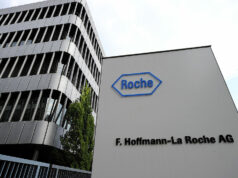
Belgian drugmaker UCB has agreed to pay $1.9 billion to acquire Zogenix, a company whose flagship drug is commercialized for one particular rare type of epilepsy and holds potential as a treatment for additional rare forms of the neurological disorder.
According to the terms of the acquisition agreement announced Wednesday, UCB will pay $26 cash for each share of Zogenix. That price is a 72% premium to the average share price in the 30 days before the deal was announced. However, it’s still shy of the $29.19 per share price that the Emeryville, California-based company’s stock reached following the 2020 FDA approval of Fintepla, a treatment for the seizures caused by Dravet syndrome, a rare and life-threatening form of epilepsy.
Zogenix shareholders could earn more. Fintepla is also being developed for Lennox-Gastaut syndrome, another rare form of epilepsy. The deal includes a contingent value right that could add $2 more for each share purchased by UCB. This additional payment is contingent on securing European Union approval of Fintepla in Lennox-Gastaut syndrome by the end of next year.
Dravet is rare, affecting 1 in every 20,000 to 40,000 people, according to statistics cited by the Epilepsy Foundation. It has historically been treated with anti-convulsant medications. That changed in 2018, with the FDA approvals of Epidiolex, a drug developed by GW Ph GW Pharmaceuticals (now a part of Jazz Pharmaceuticals), and Diacomit, a product of France-based Biocodex.
Fintepla is Zogenix’s only commercialized product, launching in the U.S. in July 2020. About six months later, the European Medicines Agency approved the Zogenix drug for Dravet syndrome. However, Fintepla has yet to become a big revenue generator. The company reported $21.4 million in third quarter 2021 sales, up from $1.5 million in the same period in 2020. In the nine months ending Sept. 30, 2021, Zogenix reported $51.3 million in Fintepla sales. In Dravet, Fintepla competes against Epidiolex, which was developed by GW Pharmaceuticals (now a part of Jazz Pharmaceuticals), and Diacomit, a product of France-based Biocodex.
Other companies are developing treatments for Dravet and Lennox-Gastaut. Last year, Takeda Pharmaceutical paid partner Ovid Therapeutics $196 million to acquire the biotech’s share of soticlestat as it was being readied for Phase 3 testing. PTC Therapeutics, Supernus Pharmaceuticals, and Stoke Therapeutics are among the biotechs with Dravet programs in various stages of development.
The UCB neurology pipeline currently includes one epilepsy program. The company is in late-stage clinical testing of an orally inhaled version of the anxiety drug alprazolam. Using the Staccato inhaler technology that UCB acquired via the 2020 buyout of Engage Therapeutics, the drug-device combination is intended to be an epilepsy rescue treatment. By acquiring Zogenix, UCB gets a commercialized epilepsy product that can compete in the Dravet market now and potentially in other forms of epilepsy in the future. In addition to Lennox-Gastaut, Zogenix is developing its drug for CDKL5 deficiency disorder, yet another rare epilepsy.
“Complementing UCB’s existing therapeutic offerings, the Zogenix acquisition provides UCB with an approved medicine for a life-threatening, rare infant- and childhood-onset epilepsy marked by frequent and severe treatment-resistant seizures, that are particularly challenging to treat,” Charl van Zyl, UCB’s executive vice president, neurology & head of Europe/international markets, said in a prepared statement. “Utilizing our deep expertise, experience and global capabilities, we plan to accelerate access for patients to the treatment.”
The boards of directors of both UCB and Zogenix have unanimously approved the acquisition, but its closing requires the majority of Zogenix shareholders to tender their shares. The companies expect to complete the transaction by the end of the second quarter of this year.
Image: mrspopman, Getty Images








